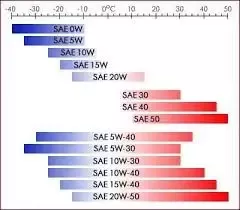In the intricate ecosystem of a vehicle’s engine, the camshaft position sensor plays a pivotal role in ensuring smooth operation. This sensor is responsible for gathering data about the camshaft’s speed and position and relaying it to the vehicle’s engine control unit (ECU). This information is crucial as it influences the timing of fuel injection and ignition. When this sensor begins to fail, it can lead to a cascade of engine problems that can affect the performance and reliability of the vehicle. Here are the seven symptoms that may indicate a failing camshaft position sensor:
- Engine Difficulties in Starting A failing camshaft position sensor can intermittently fail to send the correct signal to the ECU, leading to sporadic starting issues. One day the engine may start without a hitch, and the next, it may refuse to start altogether.
- Illumination of the Check Engine Light the Check Engine Light is a tell-tale sign that something is amiss with the vehicle. While it can indicate a multitude of issues, a series of trouble codes such as P0340 to P0349 are often associated with camshaft position sensor failures.
- Degraded Engine Performance Incorrect signals from a faulty sensor can cause the ECU to miscalculate the air-fuel mixture, leading to hesitation, stalling, or a general lack of responsiveness, particularly during acceleration.
- Limp Mode Activation To protect the engine from potential damage, the vehicle may enter ‘limp mode’ which significantly reduces engine power and limits performance, a direct consequence of erroneous data from a compromised camshaft position sensor.
- Engine Misfiring An engine misfire can be a symptom of a bad camshaft position sensor as it disrupts the synchronization between the camshaft and the ignition system, leading to a lack of combustion in one or more cylinders.
- Transmission Shifting Issues The transmission relies on accurate timing signals to shift gears smoothly. A faulty sensor can disrupt this timing, leading to rough or improper gear shifts, especially in automatic transmission vehicles.
- Increased Fuel Consumption A malfunctioning camshaft position sensor can cause the engine to run rich or lean, which not only affects performance but also leads to higher fuel consumption as the ECU struggles to maintain the correct air-fuel ratio.
Recognizing these symptoms early can prevent more significant engine troubles down the line. If you suspect your camshaft position sensor is failing, it is advisable to have it checked and replaced by a professional mechanic to ensure your vehicle continues to run efficiently. Remember, a well-maintained sensor not only contributes to the longevity of your engine but also ensures optimal fuel economy and performance.
Read More:


